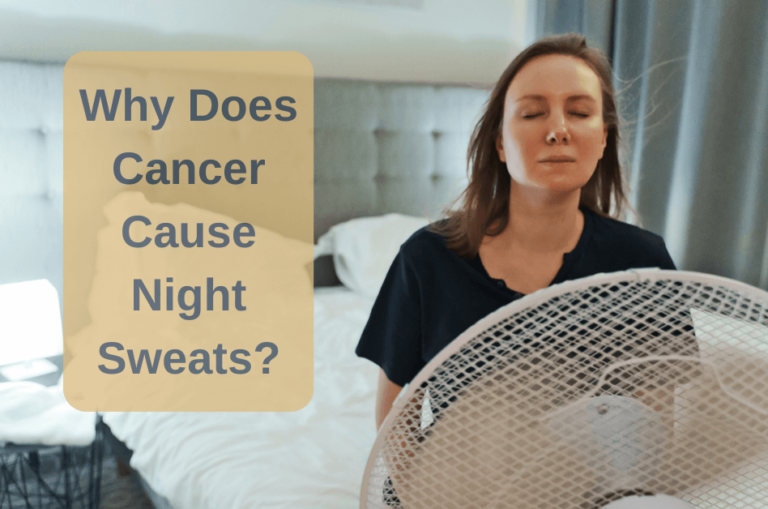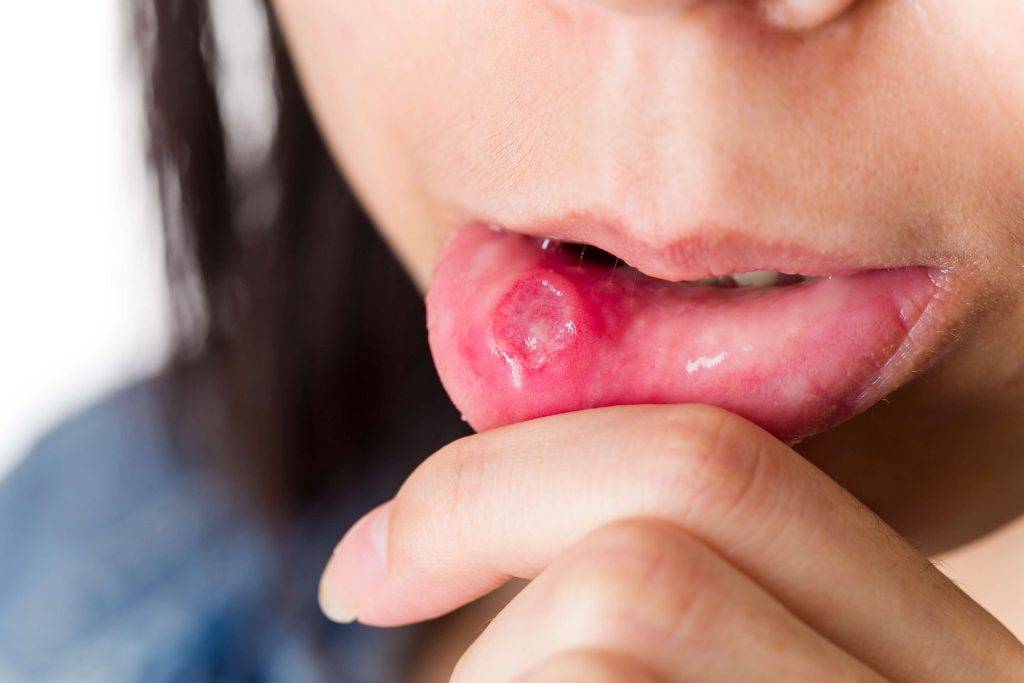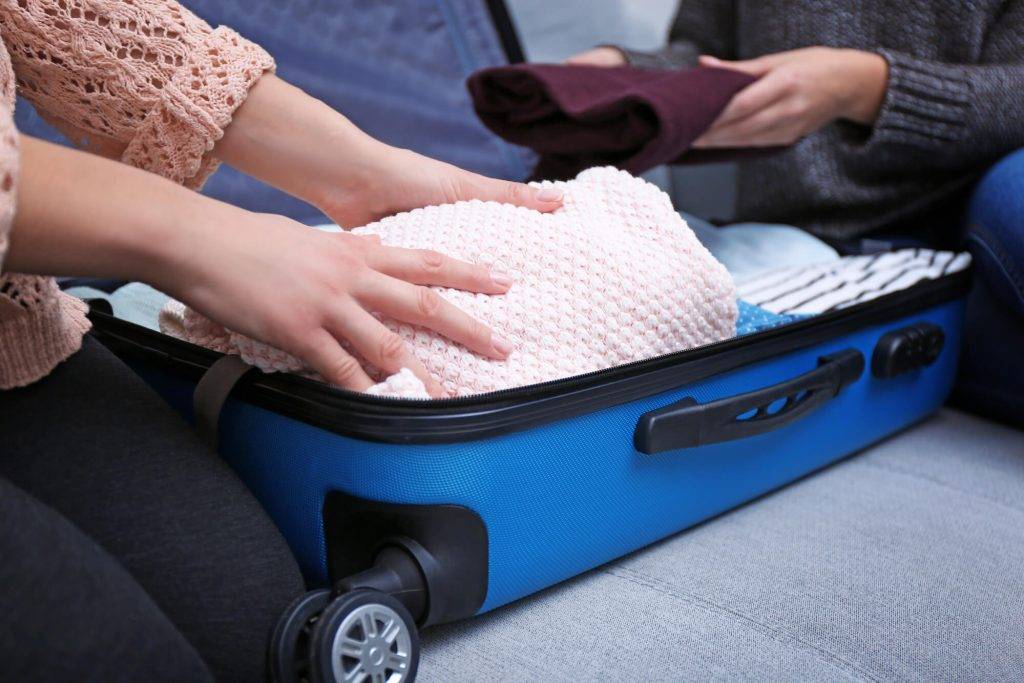
Night sweats can be the worst. After tossing and turning, trying to turn your mind off and fighting insomnia, you finally drift off to sleep, only to be woken up, feeling as though you’re on fire from head to toe, and your pajamas and bed sheets are soaked in sweat. Now you’ve got to get up, cool off, change your sheets, and relax enough again to fall back asleep! So why does cancer cause night sweats? Let’s explore the causes of night sweats and how to deal with night sweats with alternative therapies, traditional medicines and lifestyle changes. When you’re done reading this article, you’ll have a better understanding of what causes your body temperature to skyrocket and practical tips to stay cool.
Sweating vs. Hot Flashes vs. Night Sweats
Night sweats actually start in your brain. The hypothalamus is the part of the brain responsible for regulating your body temperature and sleep, among other things. When the hypothalamus thinks your body temperature is getting too high, it sends signals out to sweat glands to release sweat through your skin. As the sweat evaporates, it cools off your body, and brings your temperature back into balance.
Hot flashes or hot flushes are a more intense reaction. This is the sudden spreading of warmth that can be all over, but may feel concentrated in your upper chest, face and neck. You may feel hot, your skin can turn red, and you may begin to sweat. Some people experience chills, though most feel very hot. Hot flashes can last a few minutes, but can come on unexpectedly all day long.
Night sweats are when the hypothalamus is tricked into believing that the body is dangerously hot. It then sends out strong signals to release a lot of sweat, to try to release this fictional heat from the body. Night sweats are strong hot flashes that occur when you’re sleeping. You may have a faster heart rate along with sweat that can wake you up from sweating through your clothes and soaking your sheets.
Hot flashes and night sweats are a common symptom for women going through menopause. The hormonal changes (drops in estrogen levels in the body) from menopause are what tricks the hypothalamus into thinking the body is too hot and creates the night sweats. The difference between menopausal night sweats and night sweats in people with cancer is that menopausal night sweats are irregular. In cancer patients, night sweats happen a lot more regularly. This can be very frustrating and make it hard to get restful sleep.
While I wish I could tell you that night sweats will happen only while you’re in treatment for cancer, the unfortunate reality is that some men and women experience night sweats long after treatment ends.
What Causes Night Sweats?
There are several reasons why cancer can cause night sweats. These include the cancer itself, hormonal changes, they can be a side effect of some cancer treatments, and other conditions.
Certain Types of Cancer
Some types of cancer are more likely to spark night sweats than others. These include:
- Leukemia,
- Lymphoma
- Carcinoid tumors
- Adrenal tumors
- Brain tumors
- Mesothelioma
- Liver cancer
- Bone cancer
Cancer Treatments
Some cancer treatments like chemotherapy, radiation therapy, and surgery to remove the ovaries can force non-menopausal women into menopause. This is called ‘induced menopause’ and can trigger strong symptoms, including night sweats.
Hormonal therapy is often used to treat breast cancer in addition to gynecologic and prostate cancers. Examples are aromatase inhibitors and antiestrogens. A common antiestrogen therapy is Tamoxifen, which is used to treat hormone receptor-positive breast cancer. The most common side effect reported from patients taking Tamoxifen is hot flashes, including night sweats.
Men who have surgeries to remove their testicles can also experience hot flashes/night sweats. This can be for testicular cancer or prostate cancer. Testicles produce testosterone, which can make prostate cancer grow, so they can be removed. Because 90-95% of testosterone is removed from the blood after this surgery, men can experience night sweats.
Hormone therapy for prostate cancer like estrogen or a gonadotropin-releasing hormone can also have the same side effect of night sweats.
Steroids aren’t a treatment to kill cancer cells, but they’re often prescribed as part of the treatment plan. A side effect of the steroids can be hot flashes and night sweats.
Other medicines often prescribed for people with cancer are known to cause excessive sweating, including night sweats. These medicines include steroids, opioids for pain control and tricyclic antidepressants for depression. Opioids in particular are notorious for causing severe hot flashes.
Treatment for cancer can weaken the immune system, so people with cancer can be more likely to develop infections. Night sweats in cancer patients can also be a sign that your body is fighting infection. It’s important to talk to your health care provider about your night sweats, so they can ask you some other questions like if you have any unexplained fever. This can help them to determine if the night sweats are an expected side effect of cancer treatment, or if an underlying infection may be causing the issue.
Other Conditions
Other conditions besides cancer can cause night sweats, including:
- Autoimmune disorders
- Bacterial infections
- Overactive thyroid or thyroid disease
- Sleep apnea
- Stroke
- Anxiety
Holistic Care for Cancer-Related Night Sweats
Complementary therapies can be used to help reduce hot flashes and night sweats. Here are some of the most common approaches:
Meditation
Meditation is a great way to reduce an increased heart rate and lower body temperature. It can also relive stress, which can be an underlying cause of night sweats. Meditation can be done at any time, so if you wake up with night sweats, after you’ve cooled off, meditation can be used to help you fall back asleep.
Relaxation Techniques Slow breathing and visualization can also help with night sweats. Breathing slowly can bring your body temperature down and slow your heart rate.
If you slow your breath, close your eyes, and visualize yourself standing in a river, with the cold water rushing over your feet, instantly cooling your entire body.
By visualizing your body as cool and comfortable before you fall asleep, this may help you sleep longer without sweats.
Visualization can be done any time of the day or night, so if you feel a hot flash coming on, you can visualize a situation where you’re cool and relaxed, like standing under a waterfall, which can help tell your brain that a hot flash isn’t necessary.
Hypnosis
Studies have shown that as few as 5 hypnotherapy sessions can reduce hot flashes by 68%. In these studies, hypnosis was also shown to reduce anxiety and depression while improving the quality of sleep.
Hypnosis by a trained practitioner or self-hypnosis techniques can be used. Hypnosis makes suggestions to help your subconscious become aware of changes in your body temperature while you are sleeping, to ward off night sweats from even starting.
Acupunture
Studies have shown mixed results when using acupuncture for hot flashes and night sweats. It’s worked in some studies with cancer patients, and has had little to no effect in others. But for those whom it has worked, it’s said that episodes of excessive perspiration are dramatically reduced, and results can last for months.
Acupressure
There are points on your head, ankle, elbow, top of the foot, and lower abdomen, among others that can be targeted with acupressure to reduce hot flashes and night sweats.
Acupressure is a commonly used technique in Chinese medicine, putting gentle pressure on specific areas of the body to relieve symptoms. A trained practitioner can either perform acupressure on you, or teach you where to press in order to relieve hot flashes and night sweats.
Aromatherapy
Mint essential oils, including spearmint, peppermint and wintergreen have cooling effects. Place a few drops of essential oil into a teaspoon or two of fractionated coconut oil and gently massage into the wrists, the back of your neck and on the soles of your feet.
Yoga
Some yoga breathing techniques and poses like plough pose, relaxation pose and legs up relaxation pose can lower your heart rate and calm your nervous system, which can relieve the intensity of hot flashes.
Cognitive Behavioral Therapy
CBT can help you better deal with stress and anxiety, which are both linked to stronger and more frequent hot flashes and night sweats.
Cognitive Behavioral Therapy can also help you develop coping skills to better manage your symptoms.
Supplements
Since supplements can interfere with your medicines, be sure to talk to your doctor first before taking them. There is concern that the following supplements that, while believed to be and often used for hot flashes because of their phytoestrogen compounds (estrogen-like properties), these could actually be harmful to those with hormone-sensitive cancers. Talk to your doctor before starting any supplements that contain phytoestrogens.
- Milk thistle
- Red clover
- Dong quai
- Chaste tree berry
- Licorice root extract
- Vitamin E
- Evening primrose
- Gingko
- Ginseng
Though some swear by black cohosh, this is known to interfere with the drug Tamoxifen. Avoid taking black cohosh if you are on Tamoxifen.
Medications Used to Treat Night Sweats
Some of the evidence-based, non-hormonal medications used for night sweats include:
- Gabapentin (a seizure and nerve pain drug)
- Clonidine (blood pressure medication)
- Antidepressants such as fluoxetine and paroxetine. Note that these can interfere with Tamoxifen.
- Marinol (also known as Dronabinol, a synthetic THC that doesn’t produce the ‘high’ like other cannabinoids)
- Oxybutynin (for overactive bladder)
- Veozah is the first FDA-approved drug that works specifically in the brain to reduce hot flashes and night sweats
Other Tips for Managing Cancer-Related Night Sweats
Here are some other tips to keep your body’s temperature cool and comfortable:
DO:
- Maintain a healthy weight
- Exercise regularly, but not too close to bedtime
- Dress in layers so you can remove them when you get too warm
- Take a cool shower right before bed
- Use fans or air conditioning to keep air moving throughout the night and keep the room cool. One of my clients swore by using this portable fan around her neck while unwinding before bed and keeping it on the nightstand to blast cold air when she woke up feeling overheated.
- Use bed sheets and pajamas made from natural fibers that wick away moisture from the skin and dry quickly
- Lay a towel underneath you in bed to absorb excessive sweat
- Sleep with one or both feet or legs out from under the covers
- Use a cooling gel pillow, a cooling pad for the bed, or cooling products throughout the day
- Keep ice water nearby and sip it when you start to feel warm, or if you wake up hot.
If you wake up with night sweats, change out of your wet clothes right away and change the sheets if needed. Sip some water, focus on slowing your breath and relaxing so that you can fall back asleep.
DON’T:
- eat spicy foods too close to bedtime
- exercise before going to bed
- drink caffeine or alcohol before bed
- use tobacco products, including cigarettes, vapes and cigars
Communicating With Your Doctor About Your Night Sweats
It may be a good idea to keep a journal of triggers you notice so that you may avoid certain things making your hot flashes worse. Take these notes to your doctor appointments to discuss these symptoms of night sweats and see if there is anything else your healthcare provider recommends for you to do.
Call your healthcare team if:
- Persistent night sweats make you dehydrated
- You have a fever of 100.5°F
- Your sweats are cold sweats that lead to shaking chills or tremors that don’t go away
What Caregivers Can Do to Help
- Help track foods, drinks and activities that lead to body sweats
- Take and record the patient’s temperature if there is a fever
- Watch for daytime fevers that accompany hot flashes and night sweats, as this can indicate an underlying infection
- Remind them to drink extra fluids
- Purchase lightweight, breathable clothing and sheets for the patient
- Help them change out of wet clothes and bed sheets
- Assist with bathing if needed
Conclusion
Night sweats can be annoying and really affect your quality of life. The good news is that there are lots of ways you can manage hot flashes and night sweats. Try the suggestions listed here and see which offer the best relief for you.
References
Atema, V., van Leeuwen, M., Kieffer, J.M., Oldenburg, HAS, van Beurden, M. et al. (2019). Efficacy of Internet-Based Cognitive Behavioral Therapy for Treatment-Induced Menopausal Symptoms in Breast Cancer Survivors: Results of a Randomized Controlled Trial. Journal of Clinical Oncology, 37(10): 809-822. https://ascopubs.org/doi/full/10.1200/JCO.18.00655
Carr, C., Vertelney, H., Fronk, J., & Trieu, S. (2019). Dronabiol for the Treatment of Paraneoplastic Night Sweats in Cancer Patients: A Report of Five Cases. Journal of Palliative Medicine, 22(10): 1221-1223. https://www.liebertpub.com/doi/epdf/10.1089/jpm.2018.0551
deValois, B., Young, T., Thorpe, P., Degun, T., Corbishley, K. (2021). Acupuncture in the real world: evaluating a 15-year NADA auricular acupuncture service for breast cancer survivors experiencing hot flushes and night sweats as a consequence of adjuvant hormonal therapies. Supportive Care in Cancer, 30: 5063-5074.
Elkins G, Marcus J, Sterns V, Perfect M, Rajab MH, Ruud C, et al. Randomized trial of a hypnosis intervention for the treatment of hot flashes among breast cancer survivors. Journal of Clinical Oncology. 2008;26(31):5022–5026.
Fenlon, D., Maishman, T., Day, L., Nuttall, J., May, C. et al. (2020). Effectiveness of nurse-led group CBT for hot flushes and night sweats in women with breast cancer: Results of the MENOS4 randomised controlled trial. Psycho-Oncology, 29: 1514-1523. https://onlinelibrary.wiley.com/doi/pdf/10.1002/pon.5432
Ramasamy, V. (2018). Acupuncture for the Treatment of Paraneoplastic Night Sweats. Journal of Acupuncture and Meridian Studies, 11(4): 159-161.
Tran, S., Hickey, M., Saunders, C., Ramage, L., Cohen, P.A. (2021). Nonpharmacological therapies for the management of menopausal vasomotor symptoms in breast cancer survivors. Supportive Care in Cancer, 29: 1183-1193.
Medical disclaimer: The content on My Cancer Resources is provided for informational and educational purposes only, and is not intended as medical advice, or as a substitute for the medical advice, diagnosis or treatment by a physician or other health care practitioner.
My Cancer Resources is reader-supported. When you buy through links on the site, I may earn a small affiliate commission, at no cost to you. As an Amazon Associate, I earn from qualifying purchases.



